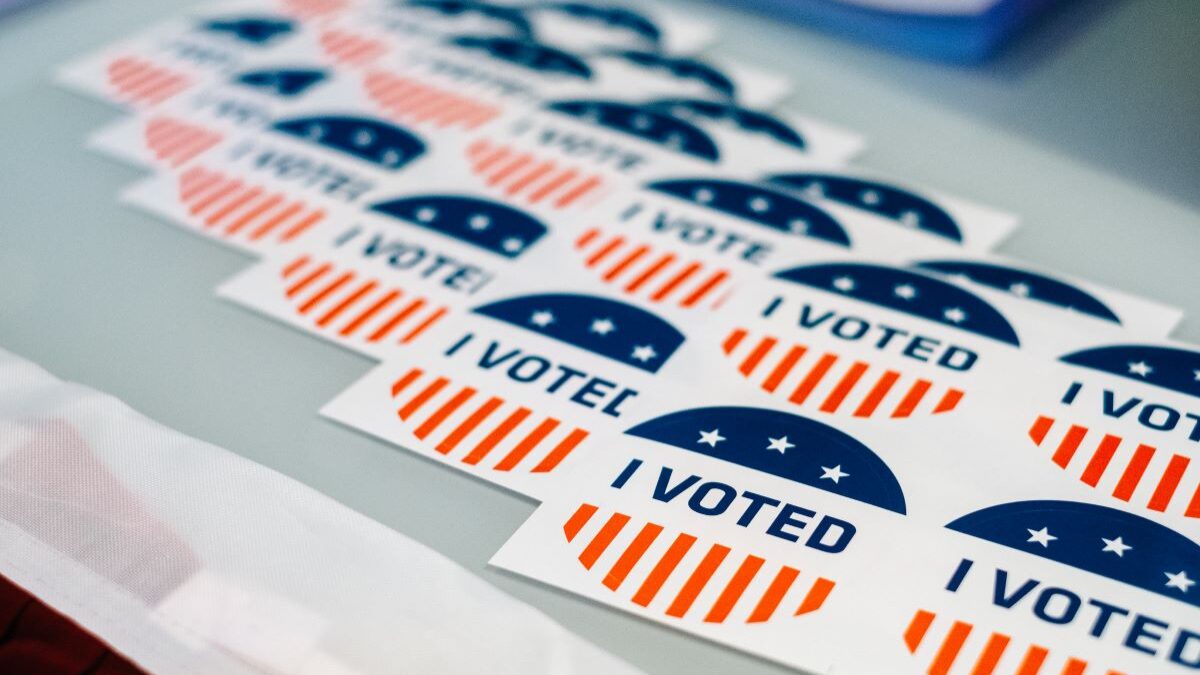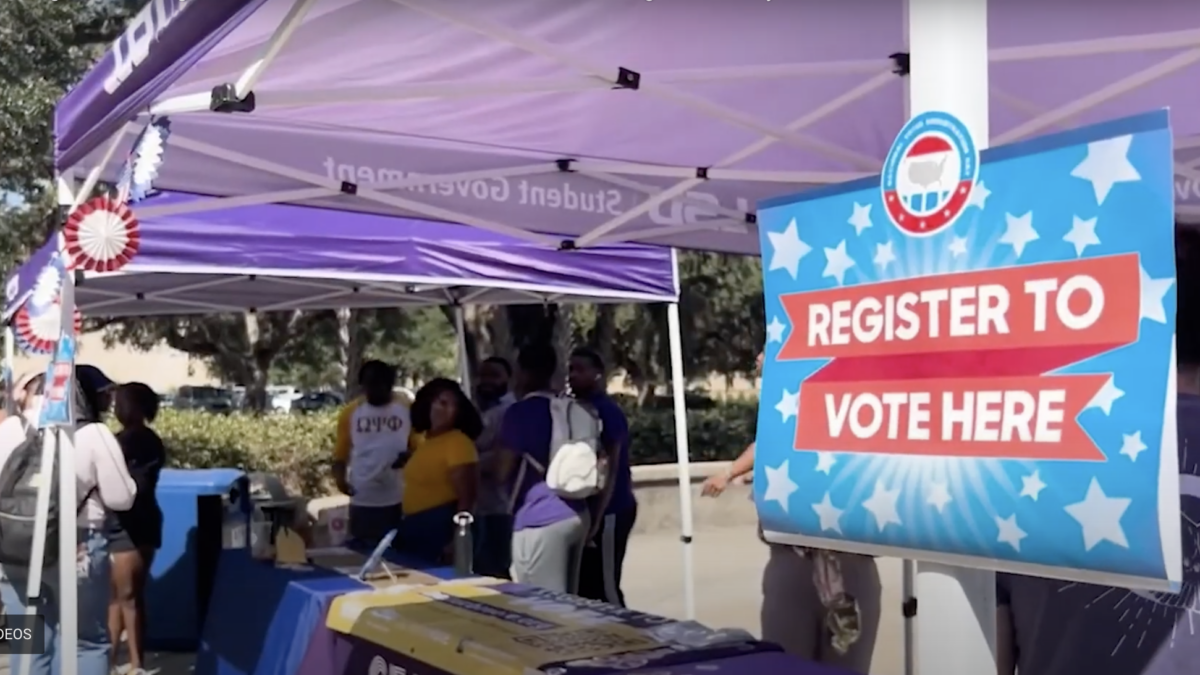Since Missouri, Florida, and West Virginia’s recent withdrawal from the Electronic Registration Information Center (ERIC) — a widely used voter-roll management group with ties to left-wing activists — last week, America’s legacy media have been in freak-out mode. In uniform fashion, leftist outlets have labeled the legitimate concerns raised by the aforementioned states as “conspiracy theories” promoted by “election deniers” and “right-wing media.”
As The Federalist’s Victoria Marshall reported, publications like The New York Times and Associated Press have gone out of their way to run grossly dishonest headlines such as “G.O.P. States Abandon Bipartisan Voting Integrity Group, Yielding to Conspiracy Theories” and “Election conspiracies fuel dispute over voter fraud system.” Predictably, these articles whitewash the issues surrounding ERIC, particularly its refusal to “require member states to participate in addressing multi-state voter fraud” and allowance “for a hyper-partisan individual to be an ex-officio non-voting member on its governance board.”
While painted as a nonpartisan venture by corporate media, ERIC is a voter-roll management system founded by far-left activist David Becker that was sold to states as a “quick and easy way” to administer their voter rolls. When states become ERIC members, they give voter data to the group — including the records of unregistered voters. Currently, ERIC has control of voter-roll data in more than half of states and the District of Columbia.
In addition to founding ERIC, Becker is also notable for launching the Center for Election Innovation and Research (CEIR), one of the major groups that received millions of dollars from Meta CEO Mark Zuckerberg in the lead-up to the 2020 election. Such grants were then poured into local election offices throughout the country to push Democrat-backed voting policies. Analyses have shown these “Zuckbucks” were heavily skewed toward Democrat municipalities, especially in swing states, effectively making it a giant Democrat “get out the vote” operation.
As The Federalist reported, ERIC transmits the voter-roll data it receives from states to CEIR, which “then develops targeted mailing lists and sends them back to the states to use for voter registration outreach.”
While currently a non-voting member of ERIC’s board, Becker announced on Tuesday he “will not accept renomination” to the board “when [his] term expires this week,” citing Republican criticisms of the group.
Despite these alarming ties, there are still several leading GOP state election officials who continue to participate in ERIC. In light of Missouri, Florida, and West Virginia’s collective withdrawal from the coalition, The Federalist reached out to these officials to inquire whether they’re reconsidering their state’s ERIC membership.
Alaska
While speaking with state lawmakers last week, Alaska’s Division of Elections director Carol Beecher revealed she was reconsidering the state’s partnership with ERIC, citing membership costs as the primary reason. A spokeswoman from the Alaska lieutenant governor’s office confirmed this assertion but noted the state “has not decided on whether to continue” as an ERIC member.
“List maintenance is an essential process to ensure our voter list is as accurate and current as possible, and ERIC is one of the tools that Alaska uses to assist in this process,” spokeswoman Tiffany Montemayor told The Federalist. Montemayor did not, however, address whether Alaska shares the concerns about ERIC raised by Missouri, Florida, and West Virginia.
Georgia
When pressed by The Federalist on whether Georgia Secretary of State Brad Raffensberger was reconsidering his state’s ERIC membership and if he shared the concerns espoused by the three aforementioned states, Raffensberger spokesman Mike Hassinger declined to answer, instead replying, “If you really believe that ERIC is ‘an interstate alliance controlled by Democrat operatives that encourages partisan outreach efforts under the guise of simple voter roll maintenance,’ you’re an idiot.”
Ohio
While once describing ERIC as “one of the best fraud-fighting tools that we have,” Ohio Secretary of State Frank LaRose has reversed course and is threatening to withdraw his state from the organization. In a letter sent to ERIC Executive Director Shane Hamlin last week, LaRose demanded the group comply with his proposed reforms in its Friday meeting.
“I will not accept the status quo as an outcome of the next meeting,” LaRose wrote. “Anything short of the reforms mentioned above will result in action up to an[d] including our withdrawal from membership.”
As The Federalist reported, “LaRose’s proposed reforms include removing ‘ex-officio membership positions’ from ERIC’s bylaws so as to cut left-wing activist David Becker from its board, as well as no longer requiring states to send out voter registration mailers to unregistered residents.”
Iowa
According to the Associated Press, Iowa GOP Secretary of State Paul Pate is among the nation’s leading Republican election officials “who said they [have] no intention” of leaving ERIC and who have “signaled strong support for the effort.”
“ERIC is an effective tool for ensuring the integrity of Iowa’s voter rolls,” Pate told the outlet.
Texas
In Texas, state lawmakers have introduced legislation that, according to The Texas Tribune, would end the state’s participation in ERIC. Under HB 2809, the Texas secretary of state would be required to “cooperate with other states and jurisdictions to develop systems to compare voters, voter history, and voter registration lists to identify voters: whose addresses have changed,” “who have been convicted of a felony,” or “who are registered to vote in more than one state.”
A companion bill (SB 1070) has also been introduced in the state Senate.
In a statement provided to The Federalist, Assistant Secretary of State for Communications Sam Taylor said that “Texas has always used the many sources at its disposal – including the Texas Department of Public Safety, Texas Bureau of Vital Statistics, local Registrars of Death, probate courts, U.S. Attorneys’ offices, and County Voter Registrars – to identify and remove ineligible and duplicate voter registrations from the rolls and update voters’ addresses.”
“Our office will continue to use every tool in our toolbox to ensure Texas’ voter rolls remain accurate and up-to-date, including by working with other states and jurisdictions – as required by Section 18.062 of the Texas Election Code, which has been law since 2015 – to identify potential cross-state registrants, movers, and deceased individuals on the voter rolls,” Taylor said.
Virginia
Unlike most U.S. jurisdictions, Virginia doesn’t have a secretary of state, meaning the state’s elections department is tasked with overseeing election administration. When pressed on whether the department is reconsidering its participation in ERIC in light of Florida, Missouri, and West Virginia’s decision to withdraw, an agency spokeswoman didn’t provide a definitive answer on the matter.
“The Department of Elections engages in ongoing and extensive list file maintenance processes,” she said. “If there are any changes made to any of these processes, they will be announced publicly.”
South Carolina
In a statement provided to The Federalist, South Carolina State Election Commission spokesman John Catalano said that while the commission has “many sources of information to remove unqualified voters for a variety of reasons,” ERIC is currently their “only source for access to critical sets of data,” including the Social Security Administration’s death files and the “list of South Carolina voters who have registered in other states.”
“While our state’s health department provides us with reports of people who have died in South Carolina, these reports do not include South Carolinians who die outside the state’s borders. The Social Security Administration death data we receive through ERIC allows us to identify these voters and make them inactive,” Catalano said. “The State Election Commission’s view is that ERIC is a valuable and currently irreplaceable tool that allows us to remove unqualified voters from the voter registration rolls.”
Leading GOP state election officials from Kentucky, Pennsylvania, Iowa, and Utah did not respond to The Federalist’s request for comment.
This article has been updated to include statements from election officials in South Carolina and Texas.







